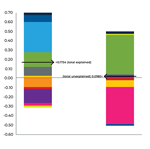To earn the CFP marks, candidates must fulfill four key requirements: Education (holding a bachelor's degree and completing the required coursework through a CFP Board registered program), Exam (passing the 170-question CFP exam), Experience (gaining hands-on experience providing financial advice to the public), and Ethics (acting as a fiduciary). Among these, the Education component offers the greatest flexibility in how it can be completed. And while the rise of virtual learning during the pandemic has made it easier than ever to find and take courses from the comfort of home, having so many options to choose from can make the selection process feel overwhelming.
Five primary factors can guide candidates in narrowing down their options when selecting a program. First, location – whether in-person, online, or hybrid – serves as an effective initial filter, as in-person and hybrid options are often limited to major cities. Second, delivery format – synchronous (live classes) or asynchronous (self-paced) – is another key consideration. While synchronous classes provide structure and more direct access to instructors (which can help some students stay on track), asynchronous classes offer greater flexibility (which can be ideal for students with unpredictable schedules). Third, additional resources offered with the program – such as exam prep or tutoring access – can add significant value for some learners. Fourth, cost, including the total 'all-in' price of materials, is another critical factor, with synchronous courses generally being more expensive than asynchronous ones. Finally, familiarity with financial planning topics can influence decisions; while those with less experience (e.g., career changers) may benefit more from the live support offered by synchronous programs, individuals with substantial industry knowledge might prefer self-paced formats. Ranking these five factors from most to least significant can provide clarity and simplify the decision-making process.
Once candidates identify their priorities, the next step is to evaluate specific programs that align with their preferences. For example, those seeking synchronous in-person options can use CFP Board's "Find An Education Program" search tool to filter results by city and explore available offerings (if any) in their area. Online learners can explore virtual providers – including the 'big five' (Dalton, Brett Danko, American College, Kaplan [College for Financial Planning], and Bryant Virtual Classroom) – which offer a variety of self-study and live class formats to accommodate different needs and schedules.
Ultimately, the key point is that aspiring CFP professionals have access to a wide range of education programs and can take a systematic approach to find one that aligns with their goals and resources. By carefully evaluating their needs and preferences, individuals can select the best program to fulfill their education requirements and take the next step on their journey to earning the CFP marks!



